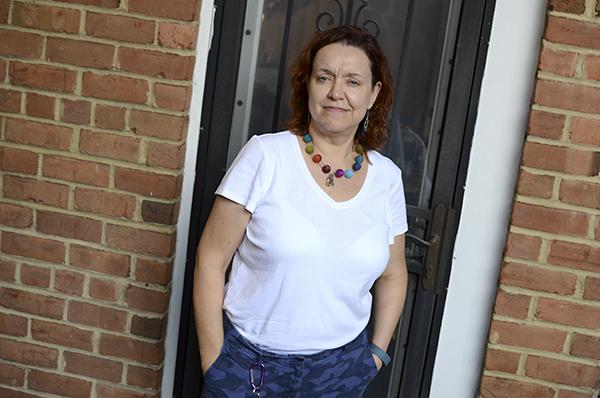A group of Foggy Bottom and West End neighbors want to alleviate some of the challenges homelessness creates for community members and make the area more liveable for neighbors both inside and outside houses.
Marina Streznewski, the president of the Foggy Bottom Association, is organizing the first formal meeting for the Homelessness Task Force later this month to brainstorm “small, practical, achievable goals” in helping to reduce litter and improve hygiene on the streets where homeless people live.
Streznewski said neighbors often approach her with complaints about homeless people littering, leaving their belongings in public places and going to the bathroom in public. To solve these issues, she thinks residents should push for more trash cans and public bathrooms available to the homeless.
“If people see that the trash is getting picked up, they will be a little less hostile to folks who are homeless,” Streznewski said. “The goal of the meeting is to actually get people working on these concrete tasks – like getting the trash cans.”
Streznewski said one of her goals for the task force is to unite the neighbors who genuinely want to help the homeless and the ones who just want them to go away. She said everyone should think of them as people who are homeless instead of homeless people.
Streznewski, who has lived in the neighborhood for more than a decade, previously worked for the D.C. Jobs Council helping homeless and disadvantaged residents find jobs. She said because of a larger portion of the city’s budget dedicated to ending homelessness, there could actually be progress.
The budget allocation to house and feed the homeless increased about 18 percent this fiscal year. Mayor Muriel Bowser has committed to ending homelessness in the city by 2018.
“This is the first time in my memory that there has been what I think are sufficient resources and enough political will to actually do something,” Streznewski said, adding she hopes the larger budget will make it possible for the city to cover the costs of additional garbage cans or portable toilets.
Jay Melder, the chief of staff for the D.C. Department of Human Services, said in an interview that he was at some of the task force’s first meetings this summer. He said the only way to end homelessness is by engaging with the community.
“I think the entire community is having a conversation about homelessness,” Melder said. “There’s a lot of energy.”
Erica Kipping, a neighbor who lives in the Historic District in Foggy Bottom, said she has heard about the task force but she does not see the homeless people who live near her as a problem because they don’t come on her property.
“It’s about giving better options,” Kipping said. “It’s a reasonable need.”
David Plotnick, a junior who lives off campus, said that after seeing the homeless people in the area, the homelessness task force would be “a great thing to have in this neighborhood.”
“The community getting involved is a really great idea,” Plotnick said. “I’d be interested in what kind of jobs they need people to do in the community.”







